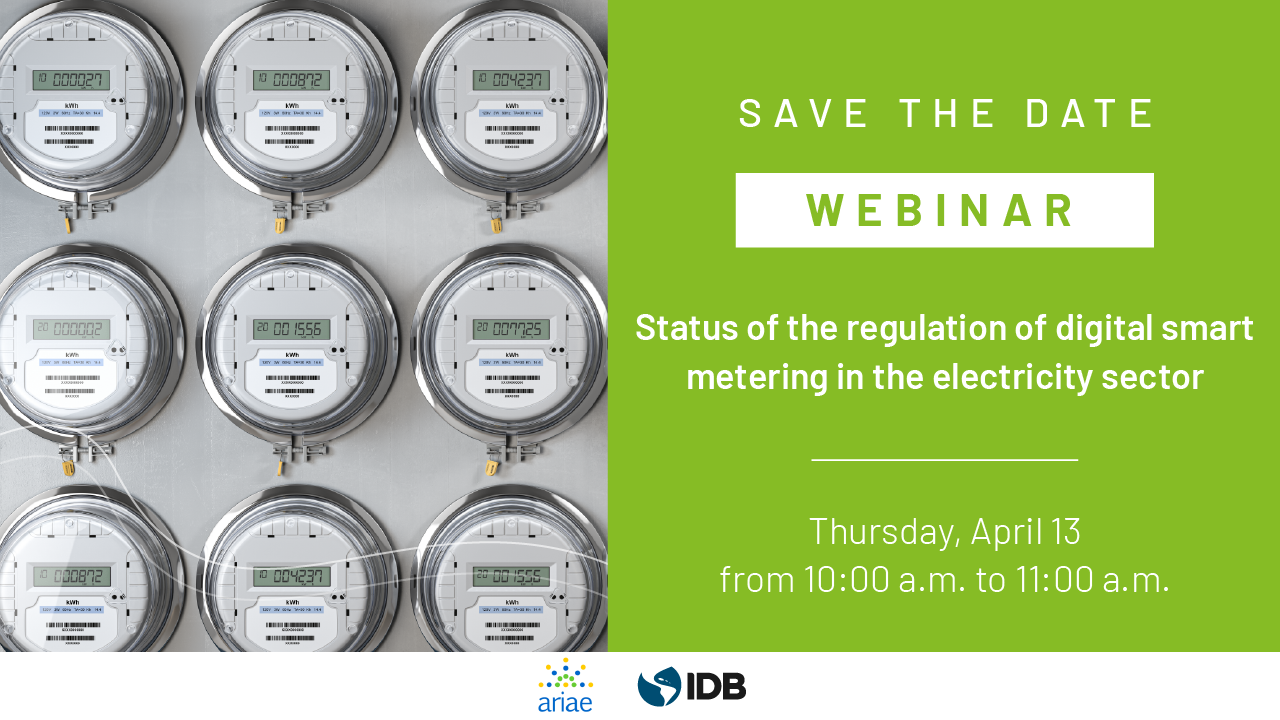The deployment of Digital Smart Metering (DSM) is essential to achieve the digitalization of a more decentralized and decarbonized energy sector, and to provide the main energy sector agents access to immediate, reliable, and harmonized data for decision-making.
Smart meters are electronic devices that measure and record electricity consumption in real-time and allow for two-way communication between the meter and the electricity company. DSM creates economic efficiencies for electrical systems, optimizes their security, and improves quality and service continuity. SDM also contributes to the development of new markets and business models and offers the consumer greater empowerment.
DSM could be an effective technological solution to modernize the energy systems in Latin America and the Caribbean (LAC) countries and help decarbonize the region. However, DSM deployment in most LAC countries is still nascent compared with other regions of the world. According to 2020 data, it is approximately 3.5%, compared with 50% in the US and 30% in the European Union[1].
What does regulation need to consider to encourage greater SM deployment?
The rapid and correct deployment of DSM in LAC depends on regulators appropriately signaling energy sector agents to make the necessary investments. Today there are a number of examples that help identify the most effective regulatory practices, as well as mistakes that should be avoided. In this context, the Inter-American Development Bank (IDB), with the support of Deloitte, developed a study to serve as a guide for regulators and government institutions who are interested in encouraging the deployment of SM.
The study identifies key issues that should be considered in the DSM decision-making process, particularly in the initial deployment. The goal is to approach this process with more guarantees and resource optimization. Some of the recommendations highlighted are:
- Identify the needs DSM must address, to better design a process that specifically responds to them.
- Conduct a cost-benefit analysis regarding its economic feasibility, considering the entire technological ecosystem around DSM.
- Define a national strategy that sets objectives and prioritizes key actions in the process.
- Design a robust regulatory environment, encouraging deployment, as well as guaranteeing the materialization of the expected benefits of DSM, in a proper control environment.
If you want to know more, don’t miss the launch of the publication “Smart metering in Latin America and the Caribbean: Regulatory recommendations to encourage the deployment of digital smart metering appropriate to the needs of each country” on April 13, 2023, on 10:00 am (EDT). The event will include discussions about the importance of regulation to encourage the deployment of SM, as well as experiences in LAC countries and other regions. Register now
[1] GPR Economía (2020). “IDEAL 2019/2020. Documento sectorial: energía eléctrica” [IDEAL 2019/2020 Electric Energy Sectoral Document]


Leave a Reply